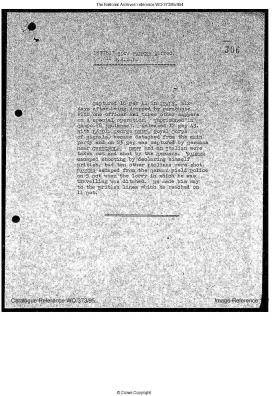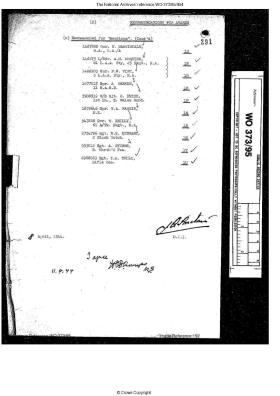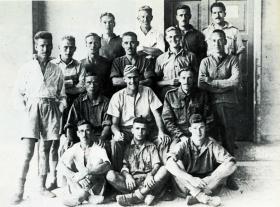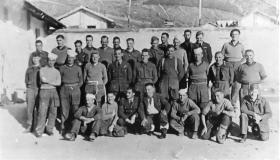Alf Parker left school at the age of 14 and was employed at a small motor repair garage. He developed a keen interest in various motorcycle trials and races, and after obtaining his license two years later he competed in as many of these events as possible. At 18 he started his own motorcycle repair business whilst simultaneously working on various designs for improvements to the basic machine, however his income was not enough to finance this pursuit and so he took a job with Hatfields in Sheffield. Upon hearing the news over the radio that England was at war with Germany, Parker did not return to work the next morning but joined up instead. A sign outside the recruitment hall said that only men over the age of 21 would be accepted, but as birth certificates were not a factor in this process, Parker lied.
Parker was posted to 238 Field Company of the Royal Engineers. It soon became apparent that only 5 of the Company's 35 vehicles and 3 of 12 motorcycles were serviceable, and so Parker and his friend, also a mechanic, were ordered start work on repairs. By February 1940 all the vehicles were up to scratch, and the Company joined the rest of the British Expeditionary Force in France. After being evacuated from the beaches of Dunkirk, Alf Parker Airborne career began when he joined the 11th SAS Battalion, Britain's fledgling unit of paratroopers (originally No.2 Commando).
On the 10th February 1941, a small raid was carried out in Italy to demonstrate the effectiveness of the new fangled parachute troops. The target was a section of the Tragino Aqueduct (Operation Colossus), which 38 men of the Battalion were sent to destroy. Though the objective was achieved the raid encountered numerous problems, not least the challenge of withdrawing over 50 miles of enemy-held mountainous terrain in treacherous conditions to reach the submarine that was waiting for them off the coast. It was a hopeless task and every man was captured, including Alf Parker, who was sent to P.G. 78 at Sulmona.
Later, after a brief spell back with the Royal Engineers and the regular army, but longed to return to the Airborne Forces and so applied to join the Glider Pilot Regiment. At about this time he married Joan, with whom he later had two sons and a daughter. Consequently, he took part in Operation Varsity (Rhine Crossing) where unfortunately he was captured again.
On March 24th 1945, the 6th British Airborne Division attempted to secure a bridgehead across the River Rhine, in Germany, to allow the Allied Armies unrestricted access to the Reich homeland. The Glider Pilot Regiment was called upon to transport all of their heavy equipment and their glider-borne infantry. The operation was a success, but there were many casualties and the group that Alf Parker was with were besieged in a house and, after a violent struggle in which he killed several Germans with a sniper rifle, Parker became Prisoner of War for the second time.
The following articles are abridged versions of his time as a POW on two occasions. For the complete, extended account of these POW spells and Alf Parker's biography, please visit www.pegasusarchive.org/pow/alf_parker.htm.
Information supplied by kind permission of John Parker and Mark Hickman (www.pegasusarchive.org.uk)
Read More




Latest Comments
There are currently no comments for this content.
Add Comment
In order to add comments you must be registered with ParaData.
If you are currently a ParaData member please login.
If you are not currently a ParaData member but wish to get involved please register.